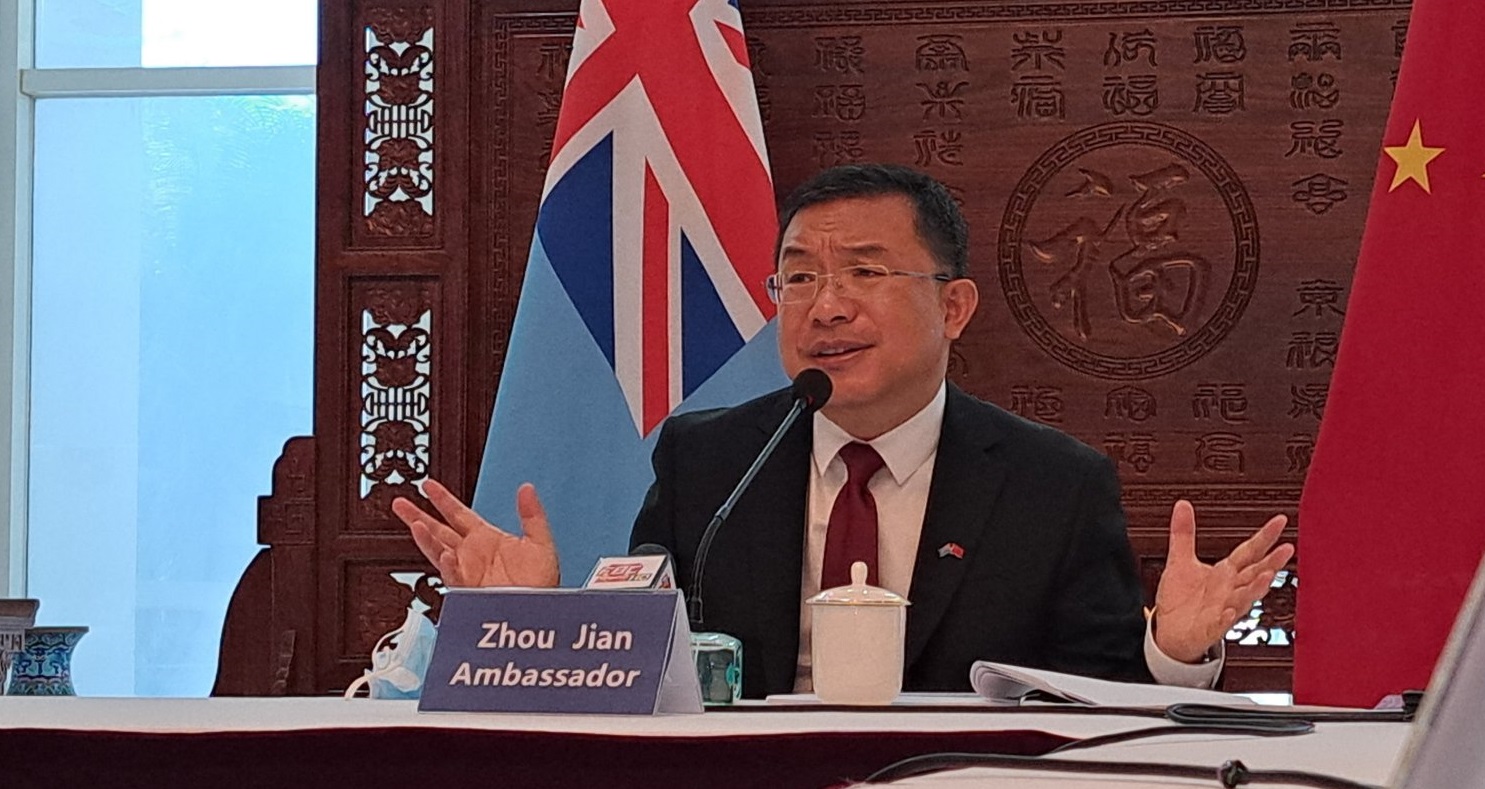Chinese Ambassador to Fiji Jian Zhou is strongly opposing plans by the Japanese Government and Tokyo Electric Company Holdings (TEPCO) to discharge nuclear-contaminated water into the ocean, highlighting its potentially irreversible impacts on marine life, ecological systems, and the health of people worldwide.
Labeling Japan’s decision as lacking sincerity and driven by selfish interests, Zhou criticises the ongoing tests of facilities to discharge treated radioactive wastewater into the sea, questioning their commitment to concerned countries and states, including the Pacific Islands Forum, while international experts are still trying to make sense of the data and information on the safety implications of these plans.
“The Pacific is not Japan’s sewer for discharging is nuclear-contaminated water. This action will endanger the safety of the global marine ecological environment and endanger the lives and health of people around the world,” Zhou said, echoing the concerns expressed by a host of international voices, including Japanese citizens worried about safety implications.
The water in question has served as a coolant for the melted reactor of the Fukushima Daiichi nuclear power plant that was damaged by an earthquake and tsunami on March 11, 2011. With storage nearing capacity early next year, Japan intends to release the water, which it insists is treated, into the Pacific Ocean to prevent accidental leaks in case of another catastrophic natural disaster.
Japan’s plan entails discharging the nuclear-contaminated water into the ocean for a span of up to 30 years. According to estimates, the water is expected to reach the Pacific Ocean within 57 days from the date of discharge.
“Japan claims that the sea discharge is harmless but the fact is there is no precedent in discharging nuclear-contaminated water into the ocean,” Zhou said, adding, “The discharge of nuclear-contaminated water should be decided upon with the greatest prudence.
“This action will endanger the safety of the global marine ecological environment and endanger the lives and health of people around the world… it will leave endless troubles to the international community and future generations.”
Zhou said the operators TEPCO initially considered five disposal options including geosphere ejection, vapor release, hydrogen release, and underground burial, yet claimed they were solely focused on ocean discharge having not conducted studies on the other options.
He also questioned why Japan, if it deems the water harmless, “does not keep it at home” urging the international community to unite and pressure Japan to fulfill its international obligations, cease its plan for ocean discharge, and ensure the safe and transparent disposal of nuclear-contaminated water under strict international supervision.









